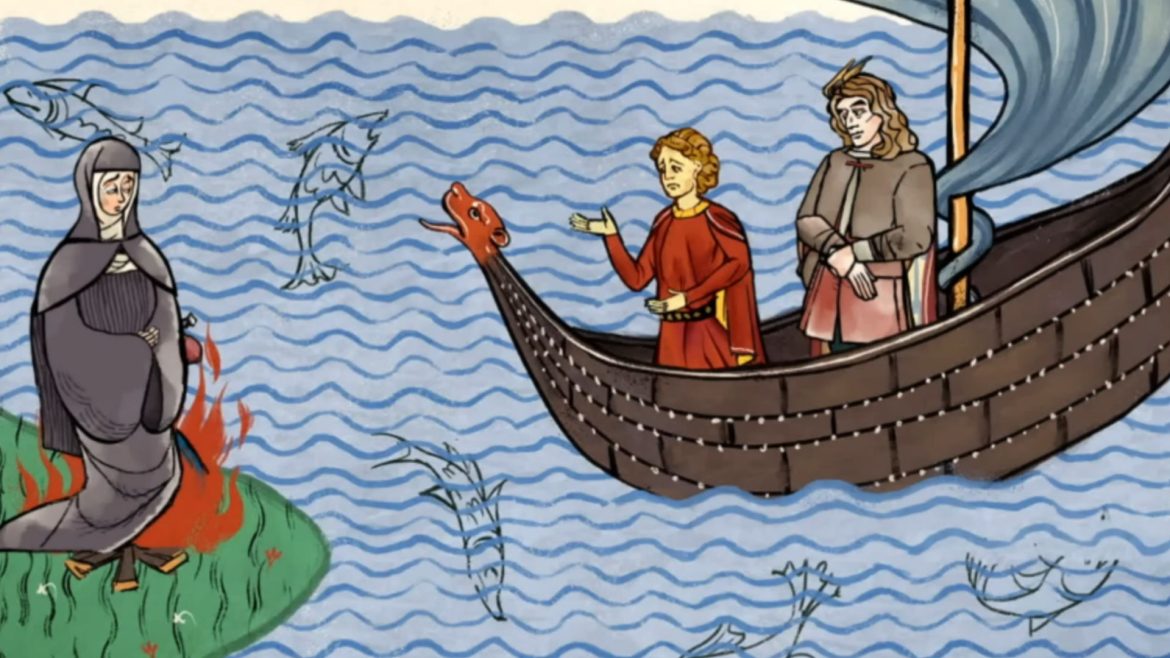Welcome back readers.
With so much of social media in flux at the moment–if it’s not sites in danger of crashing entirely it’s gruelling rounds of layoffs–this feels like a timely moment to highlight that Critical Distance maintains its own community Discord server where folks chat about what they’re playing, interrogate the meaning of genre, or participate in much-vaunted Cheesecourse.
This Week in Videogame Blogging is a roundup highlighting the most important critical writing on games from the past seven days.
Subject/Object
Let’s start this week with close critical examinations of art and authorship in a pair of recent games.
- Pentiment Game Review: Everything Is Illuminated | Paste
Emily Price explores authorship, art, and authenticity in the manuscripts and margins of Pentiment. - The Rapists of Immortality | Unwinnable
Aster Shen contemplates perspective, identification, and abuse in Immortality (content notification for discussions of child abuse and sexual assault).
“I locate a heavy vein of despair in my head, my despair at being overpowered and defeated by the Other, my reality rejected and replaced by theirs instead. I have lived this. More than once.
And also —
I am still here.
Maybe I am the truth.“
F to Interpellate Respect
Three critics approach one of gaming’s tentpole blockbusters from different angles to study its art of saying nothing at all.
- The Status-Quo (A)politics of Modern Warfare II | No Escape
Kaile Hultner contemplates how a narrative commitment to the narrow lens of the individual in Modern Warfare II renders the game’s own creators insensate to the broader structures of the political. - Going Loud | Bullet Points Monthly
Reid McCarter identifies a philosophy of ‘good’ and ‘bad’ approaches to war expressed through the acoustic design of MWII‘s gunplay. - Subjective Analysis of Modern Warfare 2019’s Objectivity in One Scene | Unwinnable
Ed Smith unspools the tightrope Call of Duty carefully walks to absolve itself of having any opinion about anything.
“The goal is to look like something and be nothing. But to look like something. But be nothing. But to look like something.”
Number Crunch
Here we have a pair of design-minded pieces focusing on crunchy mechanics with accompanying thematic payoffs.
- ‘V Rising’ lights the way forward for the survival game genre | The Washington Post
Jeremy Signor breaks down how vampire survival game V Rising makes the sun into such a mechanically and thematically gratifying adversary. - NAGA’S BLESSING | Eoan Wave II
Sraëka-Lillian highlights Fire Emblem 4 as a rare strategy game that encourages the player to care about every stat on the board, both mechanically and thematically.
“This is an important notion for FE4: The breadth and definition of character identity as expressed through combat stats (and especially through character skills) is one of FE4’s most unique triumphs as a large-cast RPG, and a key part, I think, of how its characters took on such a mythical quality. Magic defense is just one small part of that triumph, but the story that the game tells through and about Res speaks to an underlying ethos: Even in war, power takes many shapes, and to confine yourself to too narrow or simplistic an understanding of it is deadly.”
Memory Card
Two authors recount their formative experiences with games and their associated media.
- The Game That First Allowed Me to Explore Gender: ‘Pokemon Crystal’ | Epilogue Gaming
Flora Merigold reflects on the difference a simple player choice made 22 years ago. - How Gaming Magazines Shaped My Love of Gaming | Sidequest
Michelle Caldeira reminisces about gaming magazines as a window into both schoolyard popular discourse and her relationship with her mother.
“As I grew up into a teenager, such talks became less and less common, as gaming became a “kid’s thing,” something dorky that “only nerds did,” but there was a period where I was privy to all the latest games merely through schoolyard talks. And hearing about those wonderful games (that I knew we could never afford), I would come home and beg my mum to buy me some magazines so I could read about them and talk to kids about them.”
Once More With Character
Our next pair of featured authors focus on characters and their relationships, in games past and present.
- Remember Me and gaming’s most overlooked Black protagonist | Metro News
Luna Reyne remembers back to a compelling character who defined a French studio before life was strange. - Butterfly Soup 2 Review | A visual novel not just for the queers | Gayming Magazine
Khee Hoon Chan watches as a relatable cast and a much-loved series come of age.
“If the original Butterfly Soup is about coming to terms with yourself and self-acceptance—like a caterpillar in the midst of metamorphosis, sloshing around in its own enzyme fluids before emerging as a butterfly—then Butterfly Soup 2 is about growth.”
Critical Chaser
Spine is showing up a lot in our weekly closing segment of late!
- Learning Self-Compassion | Into The Spine
Natalie Schriefer reflects on self-love in Breath of the Wild.
“Self-acceptance and self-compassion are hard. In that memory, Zelda could use both.”
Subscribe
Critical Distance is community-supported. Our readers support us from as little as one dollar a month. Would you consider joining them?
Contribute
Have you read, seen, heard or otherwise experienced something new that made you think about games differently? Send it in!


